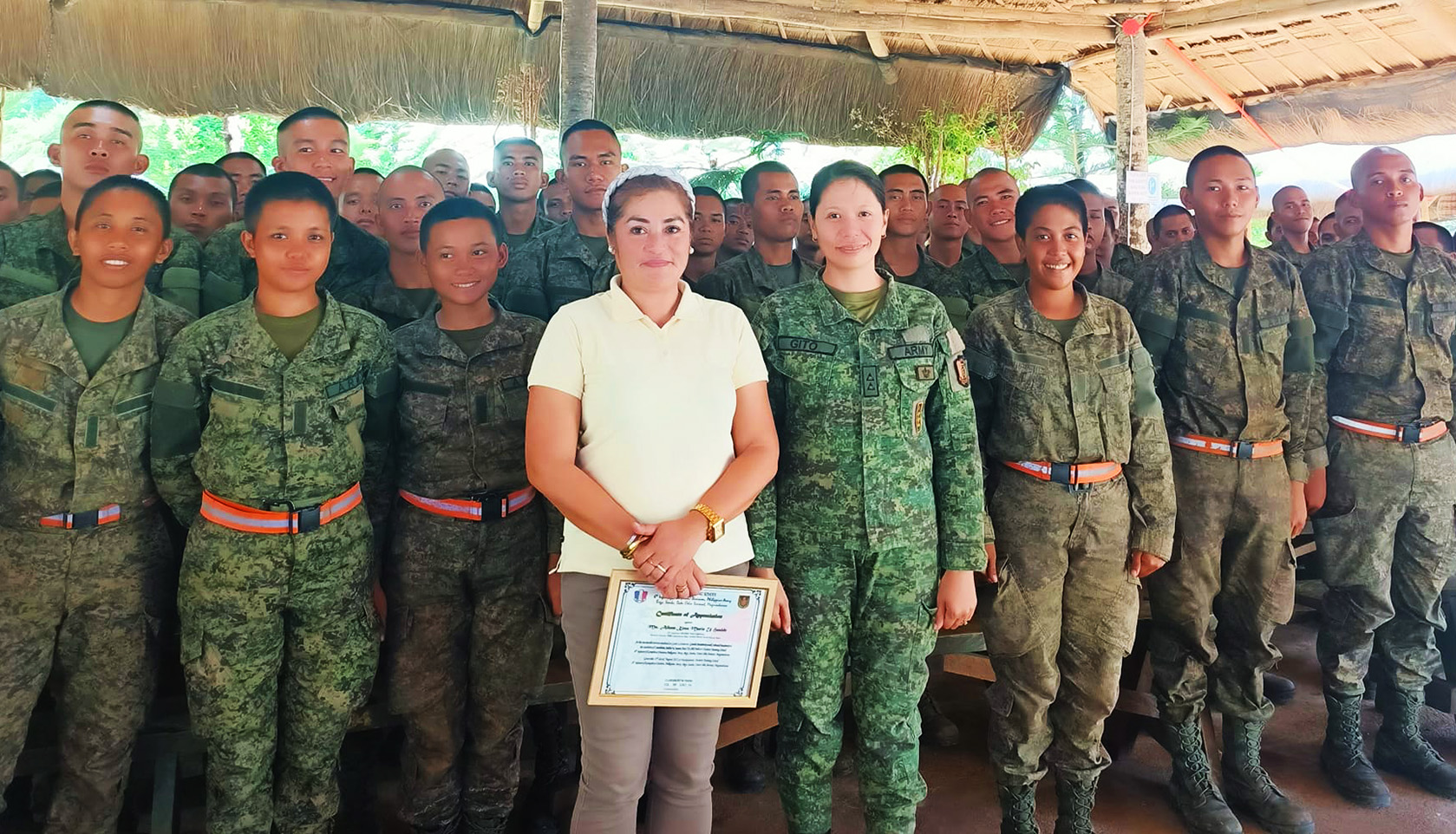In the words of Aileen U. Hualde: “Development efforts come in when peace and humanitarian actions are practiced on the ground”
Date:
Interviewer: Carol Dawonlay vda Bello

Aileen U. Hualde, 47, is based in Maguindanao Province in the Bangsamoro Autonomous Region in Muslim Mindanao, in southern Philippines. She is a leader of the Teduray indigenous people and founder of the Women Organization of Rajah Mamalu Descendants, which groups women whose families were displaced by armed conflicts. Hualde was first trained on gender and peace advocacy through the UN Women’s Speakers’ Bureau in 2016, and she and members of her organization attended a Training on Quick Community Response Teams on 5-7 July 2022 in Lake Sebu, South Cotabato, the Philippines. The teams help people displaced by natural disasters and violent conflicts. The training was supported by STEP, the United Nations Secretary-General’s Peacebuilding Fund Phase 3, and UN Women’s project Empowering Women for Sustainable Peace, which is funded by the Governments of Canada and the Republic of Korea.
We started with a few mothers and young women concerned with families being displaced by armed conflicts and violent land conflicts. While we highly rely on volunteerism, we are delighted that to date, (our organization) is now 845-member strong, with members coming from 11 barangays [local administrations] from the municipalities of Upi, South Upi, Datu Blah Sinsuat and Datu Odin Sinsuat in Maguindanao Province. Among these barangays, four are affected by conflict and seven are classified as Geographically Isolated and Depressed Areas.
To date, we have served more than 13,000 individuals, or approximately 2,600 families. We are not funded, do not receive donations on a regular basis, so whenever we plan relief activities for displaced families, we call on organizations, businesses and individuals for donations in kind or cash. Alongside diligent distribution of food, water and hygiene supplies, and other relief items, we also make sure we can report back [to] those who sent support.
While doing local humanitarian action, we became familiar with how we can work together with the local government and the security sector. Witnessing their sincerity, we have eventually developed a good relationship with these partners.
There were many times when we were able to reflect on the importance of doing peacebuilding work and conducting humanitarian action. We believe that the two go hand in hand to build each other. Development efforts come in when peace and humanitarian actions are practiced on the ground.
While we help displaced families, we should also understand why they were displaced and how we can help put a stop to this cycle of displacement. It is at this point that we also developed our own pulse of community response and formed small cohesive teams composed of concerned residents, barangay officials and volunteers, tribal leaders and elders, young people, small business owners and some professionals. Knowing the criticality of our response to displaced families who come from the poorest and most isolated areas, we make sure we act quickly.
UN Women took notice of what we have been doing and we truly look forward to this partnership with them. We are ready to journey together to develop Quick Community Response Teams that blend humanitarian action with peacebuilding and development. While displacements caused by violent conflict and exacerbated by poverty persist in the communities we serve, we hope that with the [response teams] initiative with UN Women, we will be able to develop a holistic model and practices that quickly respond to humanitarian needs, build peace, and eventually lead to development, especially for the poorest among our tribe.”